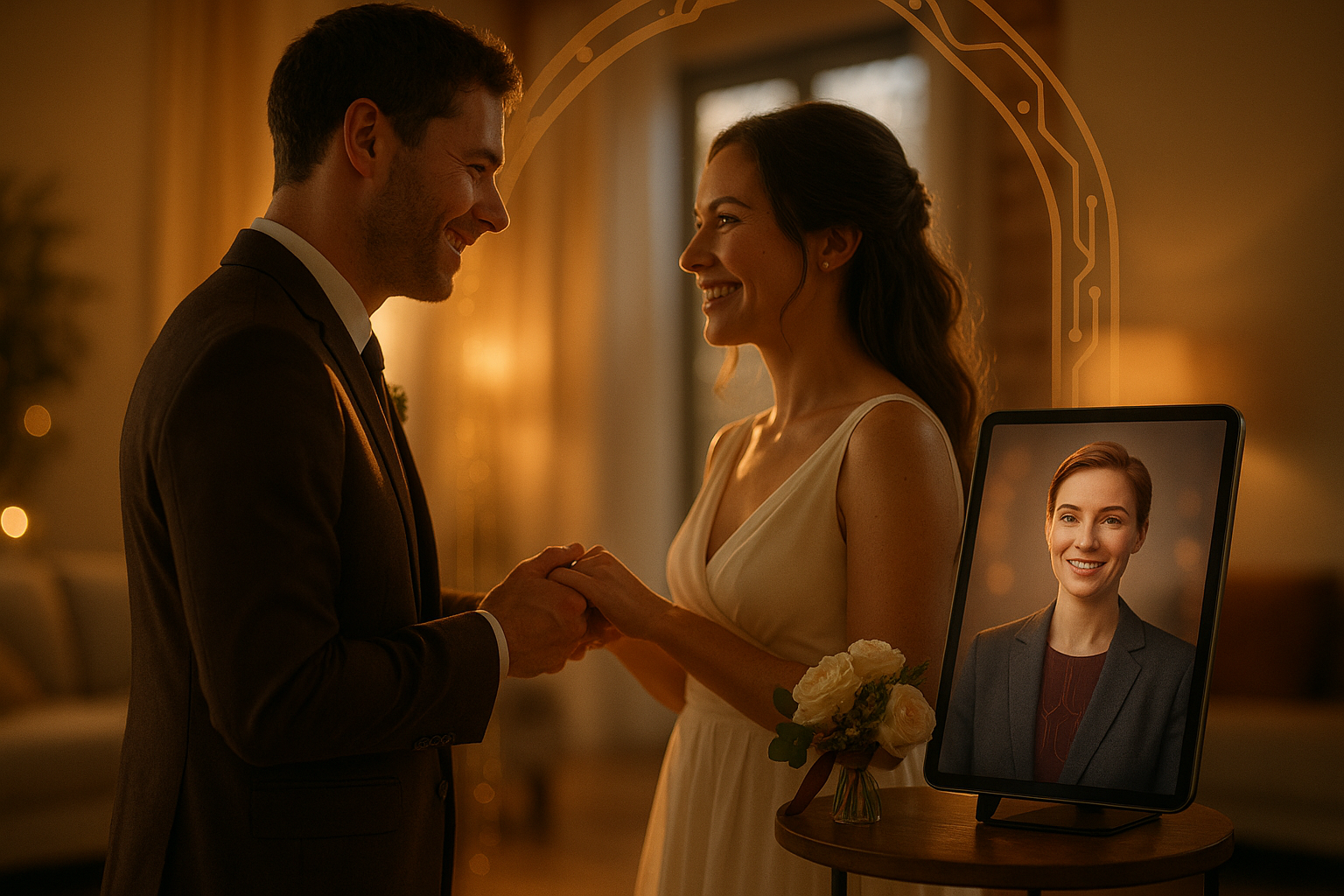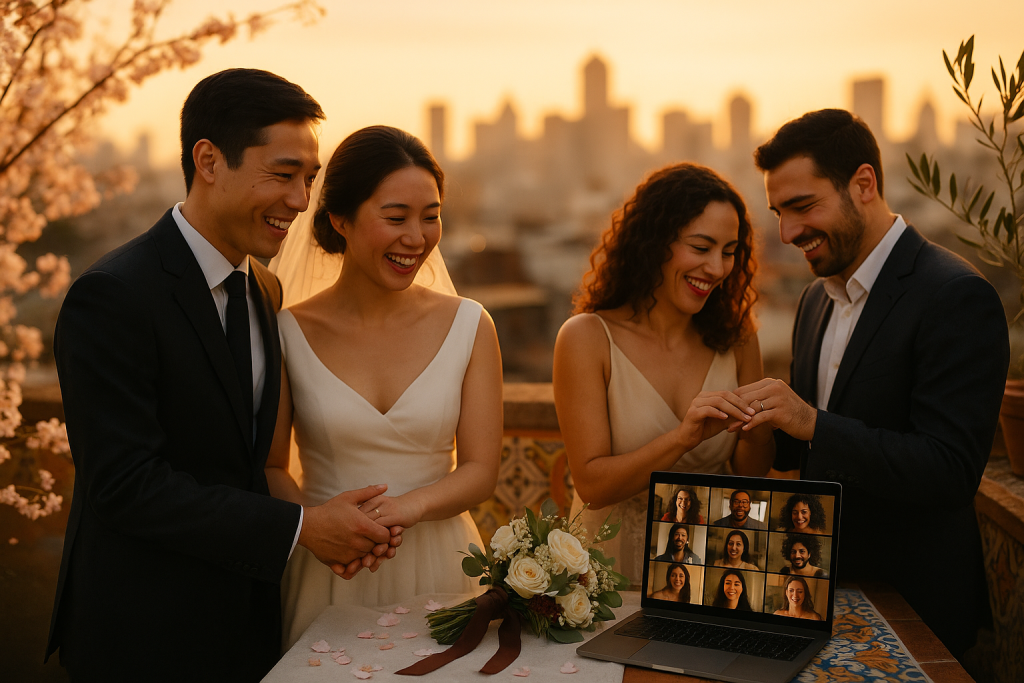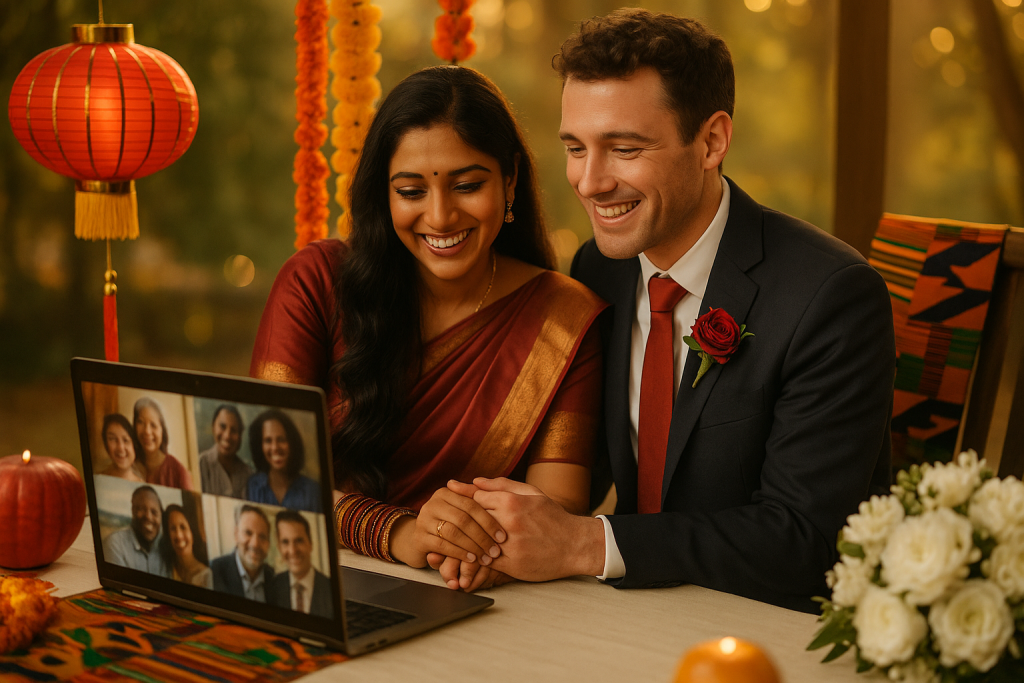Imagine planning your wedding and having an AI officiant lead your ceremony. Sounds futuristic, right? With the rise of online marriage services, the concept of AI officiants is gaining traction. But what does this mean for couples looking to get married online?
What Are AI Officiants?
AI officiants are artificial intelligence systems designed to perform wedding ceremonies. They can generate personalized scripts, conduct virtual ceremonies, and even issue symbolic marriage certificates. This innovation is particularly appealing for virtual weddings and online marriage services.
How Do AI Officiants Work?
Platforms like Mrs. Aria offer AI-powered officiants that conduct ceremonies via Zoom. Couples can apply online, schedule their ceremony, and receive a digital marriage certificate afterward. While these certificates are symbolic and not legally binding, they provide a unique experience for couples seeking a virtual wedding. Learn more about Mrs. Aria’s services here.
Legal Considerations
It’s important to note that, as of now, AI officiants cannot legally solemnize marriages. According to the American Marriage Ministries, a wedding officiant must be a living human being to legally perform a marriage ceremony. However, in states that allow self-solemnizing ceremonies, couples can conduct their own wedding with an AI co-officiant for ceremonial purposes. Read more about the legal aspects here.
Benefits of AI Officiants
- Personalization: AI can tailor ceremonies to reflect the couple’s unique story and preferences.
- Accessibility: Virtual ceremonies make it easier for couples in different locations to unite.
- Innovation: Incorporating AI adds a modern twist to traditional ceremonies.
Challenges to Consider
- Legal Recognition: AI-led ceremonies are not legally binding in most jurisdictions.
- Emotional Connection: Some may feel that an AI lacks the personal touch of a human officiant.
Integrating AI into Your Virtual Wedding
For couples interested in a virtual wedding, combining AI elements with human officiants can offer the best of both worlds. While an AI can assist in planning and scripting, a human officiant ensures the ceremony is legally recognized and emotionally resonant.
FAQs
Can an AI legally officiate a wedding?
No, AI officiants cannot legally solemnize marriages. A human officiant is required for the marriage to be legally binding.
Are AI-led ceremonies recognized by law?
Currently, AI-led ceremonies are symbolic and not legally recognized.
How can I incorporate AI into my wedding?
You can use AI for planning, scripting, and as a co-officiant in a self-solemnizing ceremony, depending on your state’s laws.
What are the benefits of a virtual wedding?
Virtual weddings offer flexibility, accessibility, and can be more cost-effective.
Where can I find more information on virtual weddings?
For more details on virtual weddings and online marriage services, visit our blog.
As technology continues to evolve, AI officiants may become a more integrated part of wedding ceremonies. For now, they offer an innovative option for couples seeking a unique and personalized virtual wedding experience.
Ready to explore virtual wedding options? Contact us today to learn more about our online marriage services.




